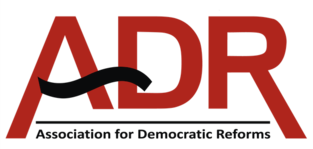The Big Story: Show us the money
The Election Commission is reportedly planning to write to the Central Board of Direct Taxes, informing it of its decision to de-list 200 political parties that have not contested elections since 2005 and exist only on paper. These, the commission concluded, could be nothing but money laundering operations and should not be entitled to tax benefits extended to serious political parties. The Election Commission seems to be gently nudging the government towards addressing the elephant in the room: black money poured into political funding. Ever since the prime minister rolled out demonetisation last month, pitching it as a bid to cleanse the system of black money, the manner in which political parties raise money has become an elephant that cannot be ignored.
Political funding remains a vast and murky world, skewing electoral processes and outcomes, even shaping key policy decisions. Among other things, it is believed to be a direct conduit of the influence that big business has on government. Previous attempts to bring transparency to this process have failed, resisted both by parties and business houses. In 1998, the Tatas introduced a corpus fund to finance political parties, presided over by a board of neutral citizens who could decide how the money would be distributed. The scheme “failed spectacularly”, observers have commented, because most political donations were made in black money.
Political parties, on their part, have steadily defied attempts to make them reveal their sources of income, even though donations of above Rs 20,000 have to be recorded and disclosed. None of the national parties complied with the 2013 judgment passed by the Central Information Commission, dictating that political parties should be subject to the Right to Information Act. With good reason, perhaps: according to analysis by the Association for Democratic Reforms, between 2004 and 2013, 73% of national parties’ income came from undisclosed sources. Governments have steadily built more protections around themselves. Earlier this year, the Lok Sabha cleared legislation that would exempt parties from the provisions of the Foreign Contributions (Regulation) Act, 2010, a law happily wielded by government to crack down on non-governmental organisations that it does not like.
Shedding light on this political economy would mean breaking with the default mode in which our electoral system has functioned for years. The recent zeal for cleaning out the augean stables has prompted various politicians, including Prime Minister Narendra Modi, to speak gingerly of the need to discuss “state funding” for political parties. But using demonetisation to crack down on the existing irregularities in party funding may still be a bridge too far.






